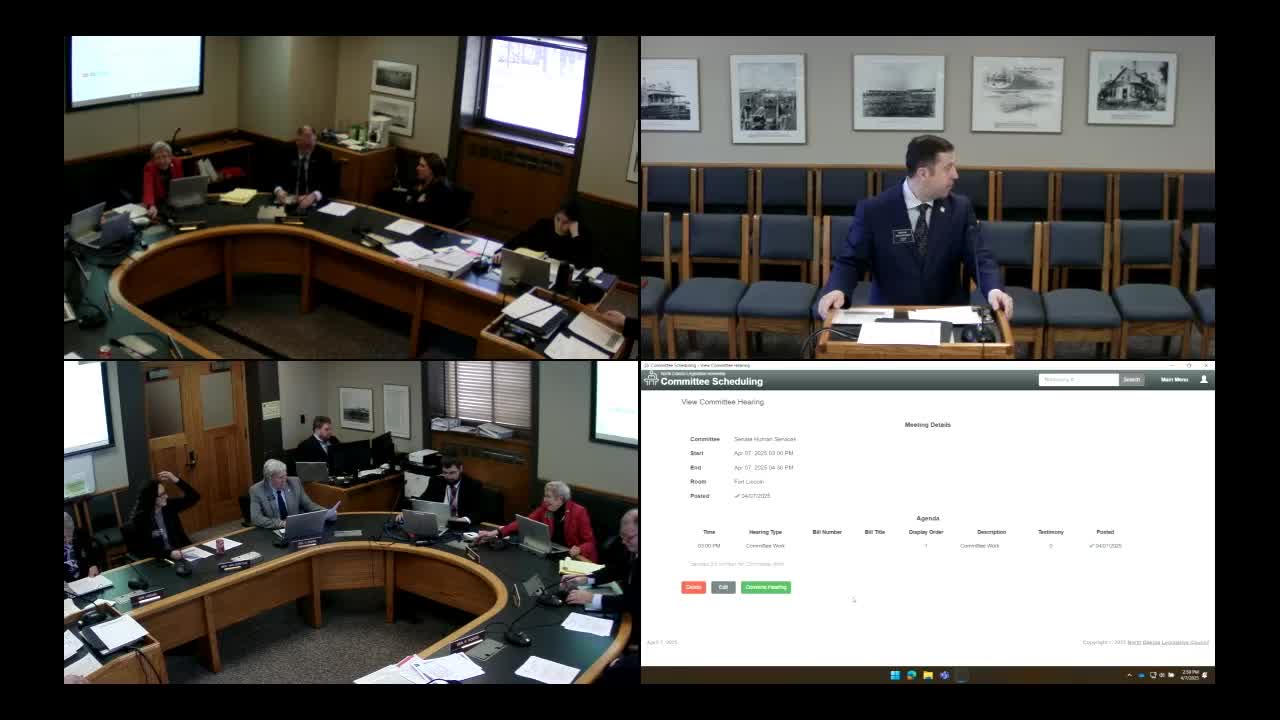Senate Human Services panel reviews bill allowing voluntary dentist-insurer talks under attorney general oversight
Get AI-powered insights, summaries, and transcripts
Subscribe
Summary
The Senate Human Services Committee on Tuesday heard an explanation of Senate Bill 2375, which would permit dental providers and dental insurers to enter voluntary, non‑fee-related joint negotiations under the supervision of the state attorney general to reduce the risk of violating antitrust law.
The Senate Human Services Committee on Tuesday heard an explanation of Senate Bill 2375, which would permit dental providers and dental insurers to enter voluntary, non‑fee-related joint negotiations under the supervision of the state attorney general to reduce the risk of violating antitrust law.
Senator Jose Castaneda, the bill’s prime sponsor, told the committee the bill’s purpose remains the same but that amendments reworked who will oversee the process and removed provisions that could run afoul of antitrust statutes. “The goal of the bill is the same. It's just how we're doing it, minor changes, big change, who we're doing it with, now, the attorney general,” Castaneda said.
The committee was presented a replacement draft (labeled “version 2,005”) that Castaneda described as a compromise between the version that passed the Senate and the House amendments. Key changes explained during the hearing include moving oversight from the Office of Administrative Hearings to the Attorney General’s Office; deleting fee‑related language and provisions about methods and timing of payment; extending a procedural deadline from 30 days to 90 days; and adding eight factors the attorney general recommended be considered during negotiations. Castaneda said those factors are intended to keep any negotiations within the limits set by Parker v. Jones, the Supreme Court case the bill’s drafters cited as allowing supervised industry collaboration.
Industry representatives told the committee they supported the amended approach. “Anything fee related … came out,” William Sherwin of the Thornsburg Dental Association said, summarizing changes made after meetings with legal authorities. Peril Grossman of the American Council of Life Insurers said the group was “very pleased with how this turned out” and praised the attorney general’s office for shaping the state oversight and consumer‑protection review.
Committee members asked procedural and substantive questions during the exchange. Members discussed why specific reimbursement and payment‑method language was removed — Castaneda said such details risked antitrust exposure even if they did not set prices — and sought clarification about whether the attorney general’s office might request additional information in the course of oversight. Castaneda said the amended text explicitly authorizes the attorney general to request more information from participating providers and insurers.
A fiscal note for the amended bill was not required, the sponsor said; earlier drafts assumed administrative hearing costs might be borne by dental providers, but Castaneda said that concern was resolved when oversight moved to the attorney general. The committee did not record a formal vote during this hearing. Castaneda and supporters said the bill’s provisions are voluntary and not intended to compel participation or set prices; they described the measure as a supervised vehicle to allow parties to talk about non‑compensatory administrative topics such as payment mechanisms, prior authorization procedures and disallow clauses.
Next steps were left to the committee. Castaneda told members they could decide whether to concur with the changes; no formal action or roll‑call vote was recorded in the transcript of the hearing.
